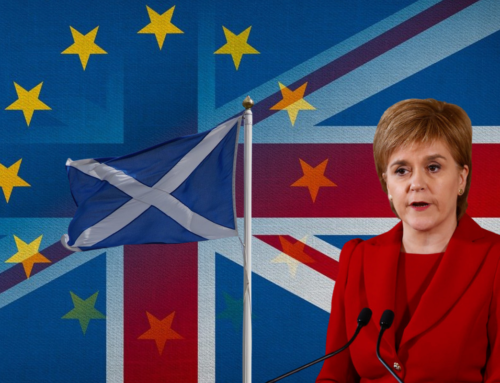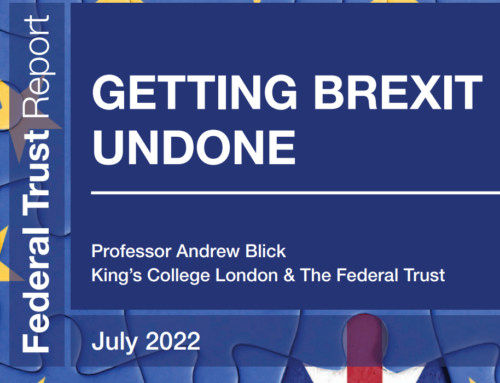EVEL and federation
27 October 2015
By Dr Andrew Blick
Lecturer in Politics and Contemporary History, King’s College London; and Senior Research Fellow at the
Federal Trust
After some delay, the government has now implemented changes to House of Commons procedure known as ‘English Votes for English Laws’ (EVEL). Under EVEL, clauses of bills deemed by the Speaker to be ‘English’ (or ‘English and Welsh’) – including financial measures – will be subject to the consent of both MPs as a whole and MPs from English (or English and Welsh) constituencies.
EVEL is intended to address an anomaly that arises from the asymmetrical manner in which devolution has developed since the late 1990s. In key policy fields such as health and education, the UK Parliament continues to debate and legislate for England; but no longer for Wales, Scotland or Northern Ireland. Why then, supporters of EVEL ask, should MPs elected from devolved parts of the UK continue to be able to involve themselves in the affairs of England, if Westminster MPs no longer have an equivalent role for the remainder of the UK?
Recent advocacy of EVEL has deployed terms such as ‘quasi-federalism’. It has also presented the measure as providing for England the same control over its own affairs that devolution has afforded to other parts of the UK – suggestive of blanket sub-UK coverage for a tier of democratic governance, similar to that which would be found in a federal constitution.
Given that attempts to justify EVEL have employed these concepts, it is apt to assess this constitutional innovation from a federal standpoint.
What insights does this perspective yield? Perhaps most importantly, the means by which the ‘states’ within a federal system govern themselves is through institutions created – and elected – for that specific purpose. The same cannot be said of the UK House of Commons which, under EVEL, is providing for ‘English’ (or ‘English and Welsh’) representation.
Under federalism, the purpose of the federal legislature is to bind together the whole. By contrast, potentially, EVEL could exacerbate already existing divisions within the UK, through according MPs different status and levels of importance according to their territorial connection. Furthermore, when there is provision for participation by ‘states’ in the decisions of the legislature in federal countries, it is based in the second chamber. Under EVEL, the House of Commons is the venue for the English (or English and Welsh) voice.
It may be that EVEL does not cause any serious difficulties in the short term, particularly because the supposed problem it sought to address was itself not as great as sometimes presented. However, the divisive possibility cannot be excluded of a future government with a majority among UK MPs that is unable to pass major legislative and financial measures because it lacks the necessary support among ‘English’ or ‘English and Welsh’ MPs. Indeed, the particular variant of EVEL chosen by the current government suggests a recognition of this problem, through still allowing MPs as a whole some part in all legislation and financial measures. But it does not resolve the basic problem that might arise from a divided House of Commons.
Whatever the precise outcome may be, EVEL is now with us. Those who disagree with it would be well advised, rather than simply calling for it to be repealed or diluted, to propose models that take forward some of the federal ideas used to justify EVEL in a more satisfactory and constitutionally stable fashion. The task of exploring the prospects for a federal UK therefore becomes increasingly important.







